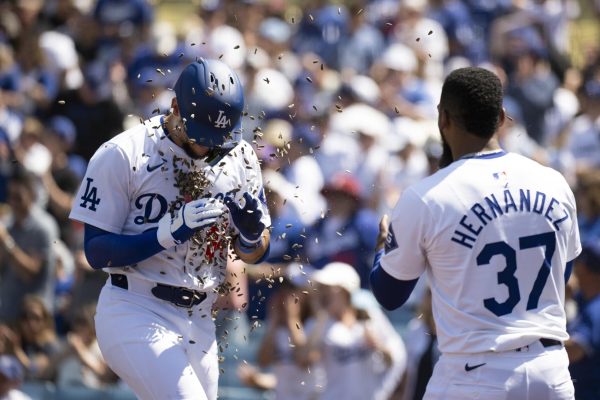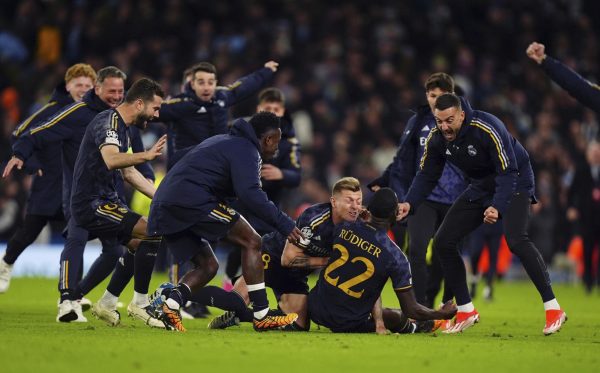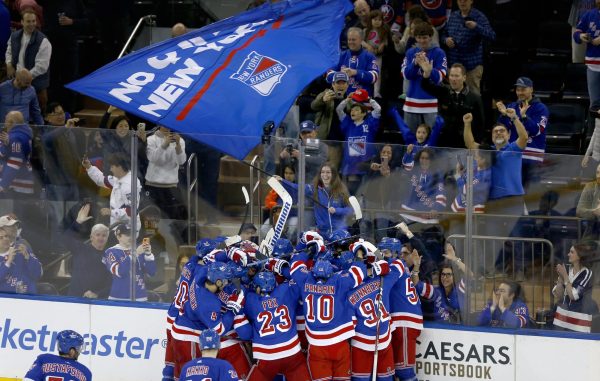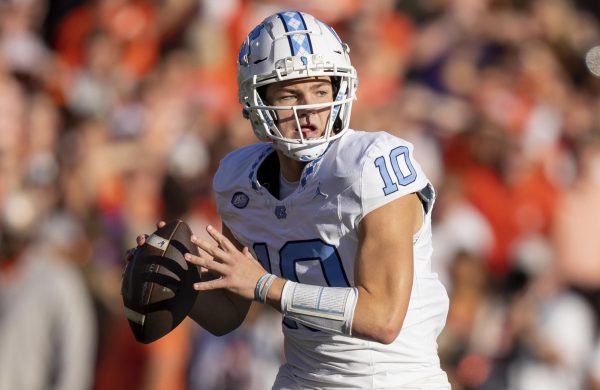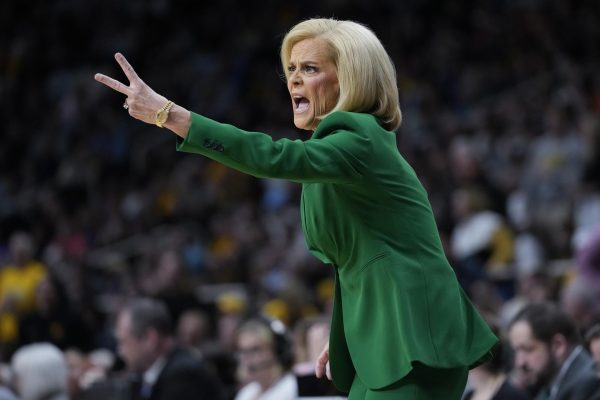Winning Without Boudreau
The average tenure of an NHL coach is 2.3 years. Bruce Boudreau of the Washington Capitals exceeded that number, remaining with his team for four years until he was let go by the organization this past Monday. It’s never easy for organizations to trade away players, and even harder for them to fire coaches, but in Boudreau’s case, the move had to be made.
Bruce Boudreau was sent from the Capitals’s minor league affiliate Hershey Bears to serve as the interim head coach after Glen Hanlon was fired on Thanksgiving of 2007. Hanlon had been at the helm for two straight seasons of sub-70 point seasons, and looked to be steering Washington to another one when General Manager George McPhee gave Boudreau a chance at his first NHL head-coaching job. Boudreau took over a team that had amassed just 13 points in 21 games and sat in last in the division. Under Boudreau’s leadership, the Capitals leapt into the NHL’s elite, winning 37 of their remaining 61 games and earning their first division championship in seven years. After they were ousted in the first round of the playoffs, the Caps’s coach was named the NHL’s Coach of the Year for his outstanding turnaround of the once cellar-dwelling capitals. In the next three years, Boudreau led his club to three straight 100-point seasons, including a league-best 121 in 2009-2010. Overall, Boudreau earned a stellar record 201-88-40 in 329 games and became the fastest coach to reach 200 wins less than two weeks ago.
There is no denying Bruce Boudreau’s ability as a coach – anyone who earns the record that he did in his first head coaching stint is automatically considered a top bench boss. What Capitals fans will tell you, however, is that Boudreau cannot win in the playoffs. When you look at the numbers and accolades of the man they call “Gabby,” everything looks hall-of-fame worthy from October to March. Once the playoffs come around in April though, the success drops off. In 2008, after finishing first in the Southeast, Boudreau’s Capitals made an early first round playoff exit at the hands of the Flyers. In 2009, after finishing second in the Eastern Conference, Washington won its first playoff series under Boudreau against the Rangers, only to be embarrassed on home ice, 6-2, in Game 7 of a Conference semi-finals series against hated rival Pittsburgh. In 2009, the frustration reached its peak. After posting an unprecedented 121 points in the regular season, Boudreau and his players went out and disappointed once again, losing the final three games of their series with last-seeded Montreal in the first round of the playoffs. Last season, Washington finished first in the Eastern Conference again, but predictably was swept by Tampa Bay, the fifth seed, in the second round of the playoffs.
Obviously not all of the blame for Washington’s lack of playoff success should be put on Boudreau; General Manager McPhee and Owner Ted Leonsis made sure the players were held accountable, too. But when you have the type of talent that Boudreau had at his disposal, there is no reason that you shouldn’t be able to get past the second round of the playoffs. Alex Ovechkin, until his recent mega-slump, was considered the best player in the league by many. Nicklas Backstrom is a 60-plus assist man and one-time, 100-plus point-getter. Alexander Semin is considered by many to be a top-five player in terms of raw talent in the league, and has two, 25-goal seasons, two 30- goal seasons and one 40-goal season. Mike Green led all defensemen in goals in 2008, in goals and points in 2009 and in goals and points in 2010. Again, Boudreau should not shoulder all of the blame, but when a nucleus is as strong as Washington’s has been for the past four years, the level of incompetence seen in the playoffs is nearly unacceptable.
As a result of last season’s playoff failure, many Capitals fans were calling for Boudreau to be fired before they had to go through another 100-point season followed by another early playoff exit this season. After starting the season off with seven consecutive wins with Gabby at the helm, however, something no one expected happened: the Capitals won just four games during the month of December, star winger Semin got benched, captain Alex Ovechkin was rumored to be feuding with his coach and Bruce Boudreau was ultimately fired on November 28, 2011 – four years and six days after being promoted from Hershey to D.C.
It’s hard to make decisions as drastic as the one that General Manager McPhee made. Boudreau took the Capitals from being a perennial, 60-point team to a 100-point team and from being a bottom-five team in fan attendance to a top-five team. However, when Washington lost in a matter of weeks to a lowly Toronto squad 7-1, the Rangers 6-3 and a Sabres team missing nine regular starters 5-1, the lack of regular season success added to a lack of past playoff success and rumors of losing the locker room made Boudreau’s exit necessary.
When asked why he fired the man who dragged Washington hockey out of the cellar, McPhee responded accurately. “When the players aren’t responding, you have to make a change,” he said. “The reason for the change was we weren’t winning, obviously, and this wasn’t a slump. You can ride out slumps. This was simply a case of the players were no longer responding to Bruce.”
Along with the end of the Bruce Boudreau era comes the beginning of a new coach’s era; on Monday, McPhee announced that the new coach would be former Capitals great Dale Hunter. Hunter, who is Washington’s longest tenured captain in history, is the only player in NHL history to rack up over 1000 points and 3000 penalty minutes in his career. Hunter’s No. 32 hangs in the Verizon Center rafters as one of just four of the team’s retired jerseys, and his style of tenacity and leadership is legendary among Caps fans.
Hunter joins the Capitals after spending 10 seasons as head coach of the OHL’s London Knights, earning six division titles and one Memorial Cup during that time. Perhaps the most encouraging part of Hunter’s past comes in the form of players whom he coached. All-Stars Corey Perry, Patrick Kane and Rick Nash all graduated to the NHL through Hunter’s Knights, as did first line NHL D-men Dan Girardi and John Carlson. Clearly the talent level of Perry and Co. mostly contributed to their growth onto the NHL stage, but Hunter’s coaching and management of these star players bodes well for the struggling Alex Ovechkin. I think the NHL is going to see a resurgence in Washington at the hands of Ovechkin and Hunter. Being the storied ex-captain that he is, it will be up to Hunter to pass on his knowledge of the game and try to get the ‘Great Eight’ back on track. If he can do that, another playoff berth could be right around the corner.
Contact Ben Glassman at [email protected].


